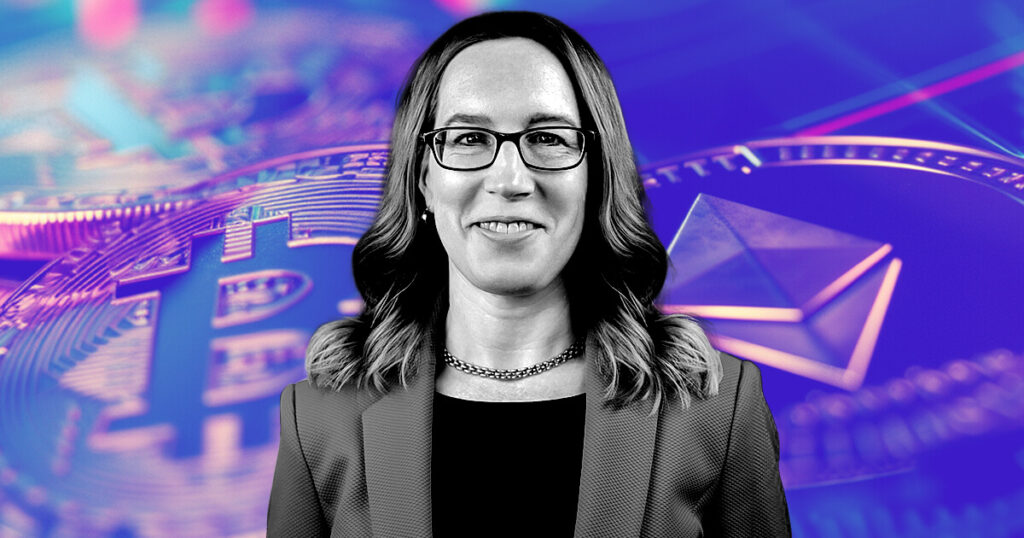SEC Commissioner Hester Peirce’s recent comments to Coinage Media have reignited discussions about the potential inclusion of staking and in-kind creation/redemption features in crypto ETFs. Peirce emphasized that these elements, which were excluded from initial ETF offerings, could be revisited in the future.
Peirce stated,
“I think certainly something like staking or any feature of the product that – we saw that on the Bitcoin ETPs too – there were features of the product that some people would have liked to see included but weren’t and those are always open for reconsideration as far as I’m concerned.”
Bloomberg’s Eric Balchunas noted that Peirce’s comments suggest these features might be reconsidered, particularly if the presidential administration changes. He included in-kind creations and redemptions, which allow ETF managers to exchange ETF shares for the underlying assets without triggering taxable events.
For Bitcoin or other crypto ETFs, in-kind redemption could help maintain liquidity and minimize capital gains distributions. However, the SEC has preferred cash redemption models for Bitcoin ETFs, which involve converting the underlying crypto into cash during the redemption process.
This comes as the crypto industry anticipates the imminent launch of Ethereum ETFs, expected as early as July 23. However, the exclusion of staking provisions from these ETFs to meet regulatory requirements could potentially hinder the growth and efficiency of the Ethereum network. The SEC recently filed lawsuits intending to classify staked Ethereum as an unregistered security.
Staking is a fundamental aspect of Ethereum’s proof-of-stake consensus mechanism, contributing to network security and decentralization. By excluding staking from ETFs, a significant portion of Ethereum’s supply could be removed from the staking pool, potentially impacting network stability and security.
This approach could lead to a concentration of staking power among a smaller group of participants, contradicting the decentralization ethos of blockchain technology. Furthermore, it could reduce the overall staking ratio on the Ethereum network, potentially affecting its performance and security.
The timing of these comments is particularly significant given the upcoming US presidential election in November. With former President Donald Trump emerging as a frontrunner and adopting a pro-crypto stance, the regulatory landscape for cryptocurrencies could see substantial shifts. Trump’s recent embrace of Bitcoin, Bitcoin mining, and NFTs, including accepting crypto donations for his campaign, signals a pivot in Republican policy towards digital assets.
This evolving political climate adds another layer of complexity to the ETF discussion. A more crypto-friendly administration could potentially revisit and revise regulations surrounding digital assets ETFs, including the inclusion of staking features.
As the launch of Ethereum ETFs likely approaches, the digital assets market faces a critical juncture. The decisions made in the coming months regarding ETF structures and features could have far-reaching implications for the future of Bitcoin, Ethereum, and the broader crypto ecosystem. The crypto industry and investors will closely watch how these ETFs perform and whether they adequately represent Ethereum’s full potential as a staking-based network.
Mentioned in this article
Read the full article here

